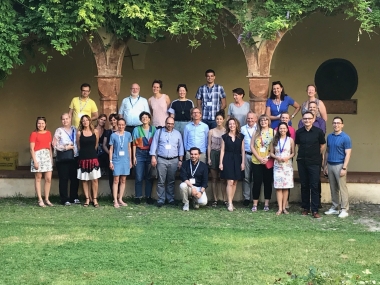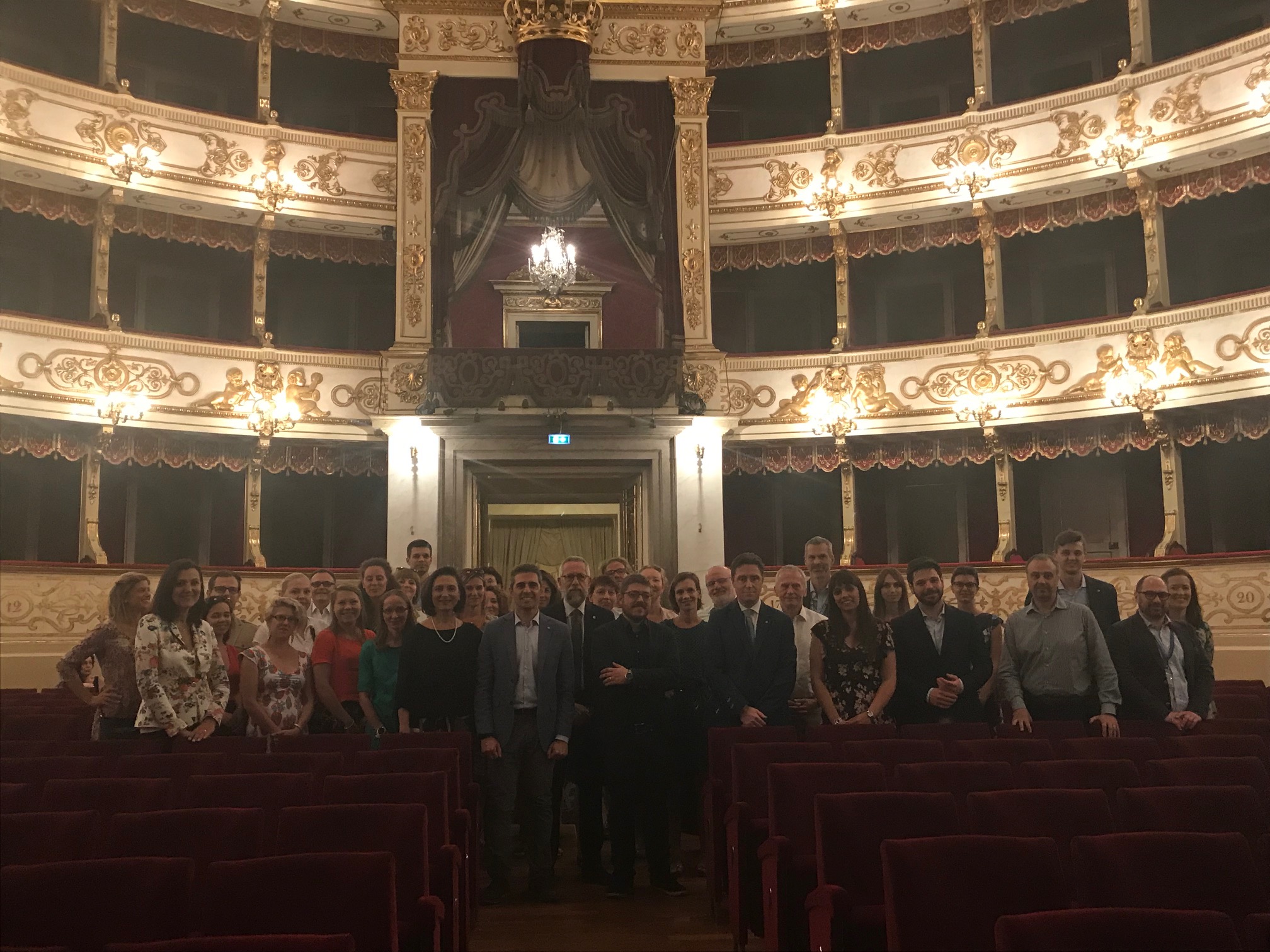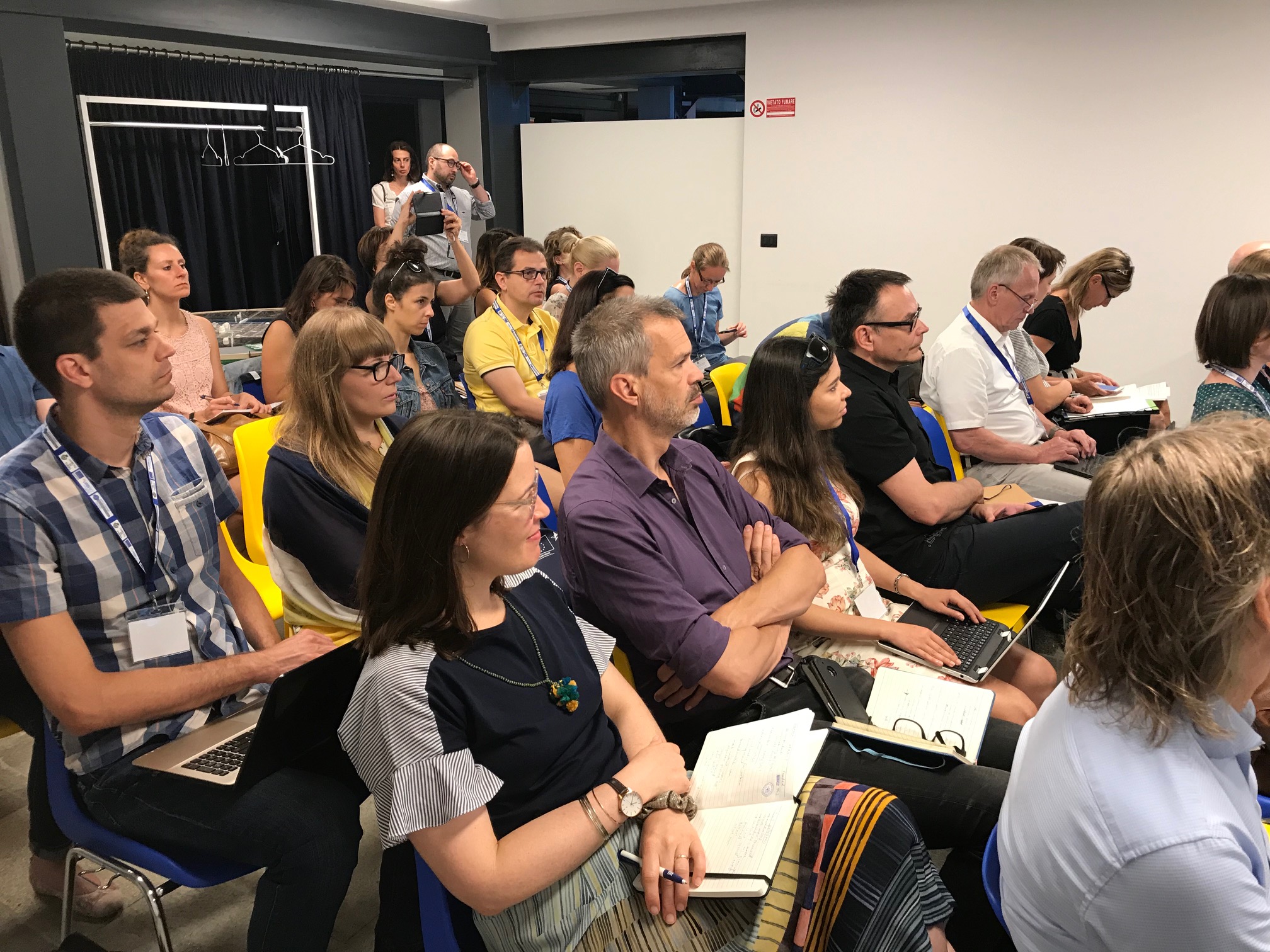Transnational Meeting Parma
Edited on
16 July 2019On the 18th and 19th of June 2019, the city of Parma in Italy hosted the third WIT transnational meeting. Parma, capital of food, Italian capital of Culture 2020. It was apt that the transnational meeting in Parma was themed ‘Citymarketing’. As per design, the first day of this meting was all about Parma, the second day was about the theme and about the best practice.

Parma is a city with a long and proud history, and a strong identity. This shows in the Urbact Local Group. Not only the University of Parma (probably the oldest of Europe, though this claim is shared with Bologna), but also many Parmese companies, that have grown to become international famous brands: Barillo (yes, from spaghetti no. 5), Chiesa (pharmaceuticals) and many others. It is typical for Prama that the international talents are attracted to home-grown companies, instead of foreign multinationals being attracted to Parma because of the talents. Parma has a strong tradition in food-production, it was therefor a logical place to set up the European Authority for Food Safety (EFSA), which also caused an influx of internationals. Also typical for the Parma ULG is the involvement of two professional sportsclubs, Parma Calcio 1913 (football, and host to our first session) and the Zebre Rugby Club (who joined us for a fun ‘Burgers and Beer” dinner). Another typical Parmese addition to the ULG was ALMA, the international school of Italian Cuisine.
What the capital of food meant, was clear through the lunches and dinners: excellent high quality food, with many AOC-labelled products, such as Coppa di Parma and of course Parmigiana, the classical hard cheese.
The Italian capital of culture was also very tangible. Culture is everywhere in Parma, the city of Verdi and Toscannini. Not only were we hosted for dinner in the breathtaking Teatro Farnese, with a recital of Händel by Elena Champion, on accordion, we were also hosted the second day by the Parma Conservatory, and treated with some opera-aria’s by several students of the Conservatory.
My overall impression of Parma is that, in terms of Welcoming Internationals, all key-ingredients are in place. Many projects have been started, many initiatives are on the way. The trick will be in making all ingredients working together. In culinary terms: we have got a great set of ingredients, we need a good recipe and a kitchen-brigade that knows how to act as a team. So, for Parma, it is good to invest in this teaming and cooperation. Maybe ALMA could do a workshop on that.
 As to city-marketing: Parma has a very strong identity, some would even call it a proud identity. In terms of city-marketing, this is an appealing position. Parma is already a brand name, at least in Europe. The proud Parmese traditions may also be a bit of a roadblock: though it is a good starting point for attracting international talent, it may make it more difficult to open up to a more international population: do the Parmese look for assimilation or for integration of internationals, and how easy, or hard, is it to become a new Parmigiano?
As to city-marketing: Parma has a very strong identity, some would even call it a proud identity. In terms of city-marketing, this is an appealing position. Parma is already a brand name, at least in Europe. The proud Parmese traditions may also be a bit of a roadblock: though it is a good starting point for attracting international talent, it may make it more difficult to open up to a more international population: do the Parmese look for assimilation or for integration of internationals, and how easy, or hard, is it to become a new Parmigiano?
In the Parma recipe for International Talent, the challenge is to innovate the traditional ‘cuisine’, without losing the authenticity of the traditions.
Many thanks to the Parma team for the excellent organization and the warm hospitality!
 Submitted by Evite van Winkoop on
Submitted by Evite van Winkoop on
